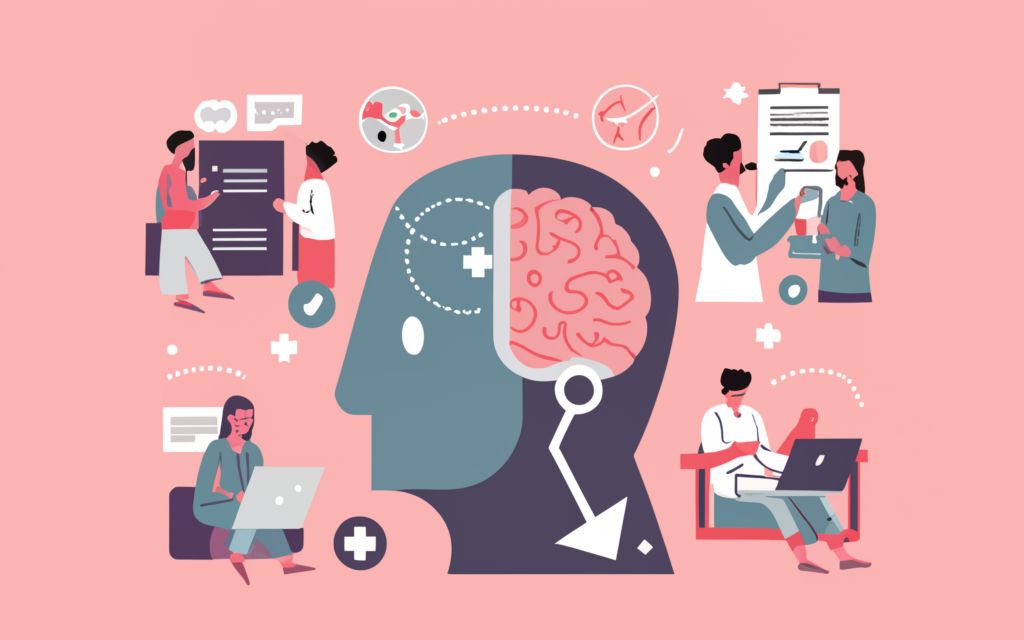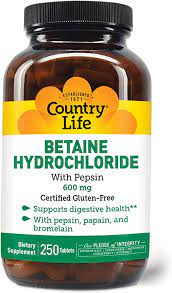Alzheimer’s disease, the most common form of dementia, casts a long shadow on individuals and families worldwide. Marked by progressive memory loss and cognitive decline, it presents a complex and challenging journey for all involved. However, understanding the disease, its causes, and available resources can empower individuals and their loved ones to face the challenges with knowledge, compassion, and hope.
Exploring the Disease:
Alzheimer’s disease disrupts the normal functioning of brain cells, leading to the buildup of protein plaques and tangles that interfere with communication between neurons. While the exact cause remains unknown, age, genetics, and certain lifestyle factors may contribute to its development.
Seeking Support and Management:

There is currently no cure for Alzheimer’s disease, but various therapies and interventions can help manage symptoms and improve quality of life. These include:
- Medications: Some medications can help regulate brain chemicals and temporarily slow cognitive decline.
- Cognitive stimulation: Activities that engage the mind, such as puzzles, games, or music, can help maintain cognitive function.
- Lifestyle changes: A healthy diet, regular exercise, and adequate sleep can support overall brain health.
- Support groups: Connecting with others facing similar challenges can provide valuable emotional and practical support.
Living with Hope:
While Alzheimer’s disease presents a significant challenge, it’s important to remember that individuals living with it can still experience joy, connection, and meaningful moments. Focusing on strengths, maintaining social engagement, and participating in enjoyable activities can significantly improve quality of life for both individuals and caregivers.
What causes Alzheimer’s disease?
The exact cause of Alzheimer’s disease is not fully understood, but it is believed to result from a combination of age-related changes in the brain, genetic factors, and environmental influences. Brain changes, such as the accumulation of amyloid plaques and tau tangles, are associated with the disease.
Is Alzheimer’s disease hereditary?
While Alzheimer’s disease can have a genetic component, it is not solely hereditary. Family history and genetics can influence the risk of developing the disease, but other factors, such as lifestyle and environment, also play a role.
How is Alzheimer’s disease diagnosed?
Alzheimer’s disease is diagnosed through a comprehensive assessment that includes medical history, physical and neurological exams, and cognitive and memory tests. Brain imaging and laboratory tests may also be used to support the diagnosis.
What are the stages of Alzheimer’s disease progression?
Alzheimer’s disease is typically divided into three main stages: mild, moderate, and severe. Each stage is characterized by specific symptoms and changes in cognitive and functional abilities.
What are the early signs and symptoms of Alzheimer’s disease?
The early signs of Alzheimer’s disease include memory loss, difficulty completing familiar tasks, confusion with time or place, and changes in mood or personality. As the disease progresses, symptoms worsen, leading to severe memory problems and the inability to perform everyday tasks.
Early symptoms of Alzheimer’s disease can be subtle, often mistaken for normal aging. However, key signs to watch for include:
- Increasing forgetfulness, especially of recent events
- Difficulty following conversations or remembering names
- Losing track of time, place, or familiar routines
- Challenges with problem-solving and decision-making
- Mood changes, such as confusion, anxiety, or apathy
Here’s a table outlining the progression of Alzheimer’s disease over time and the common complications associated with each stage:
| Stage of Alzheimer’s Disease | Description | Common Complications |
|---|---|---|
| Early Stage | Mild cognitive impairment characterized by | – Mild memory loss |
| occasional memory lapses and subtle changes | – Difficulty with problem-solving and planning | |
| in cognitive function. | – Challenges with language and communication | |
| – Mild mood swings and changes in behavior | ||
| Middle Stage | Moderate cognitive decline with more | – Increased memory loss and confusion |
| pronounced symptoms. | – Difficulty recognizing familiar faces or places | |
| – Worsening language difficulties | ||
| – Agitation, aggression, or wandering behavior | ||
| – Impaired judgment and decision-making | ||
| Late Stage | Severe cognitive decline, profound | – Severe memory loss and disorientation |
| impairment in all areas of cognitive function, | – Inability to recognize loved ones or oneself | |
| and loss of independence in daily activities. | – Difficulty swallowing and increased risk of choking | |
| – Loss of bladder and bowel control | ||
| – Complete dependence on caregivers for care | ||
| End Stage | Terminal stage characterized by | – Loss of ability to communicate verbally |
| extensive brain damage and profound | – Severe physical decline, including muscle wasting | |
| cognitive and physical decline. | – Increased vulnerability to infections | |
| – Bedridden and unresponsive state | ||
| – Eventually leading to death |
This table provides an overview of the progression of Alzheimer’s disease through its various stages, along with the common complications associated with each stage. It is essential to note that individual experiences may vary, and progression rates can differ from person to person.
Are there any treatments available for Alzheimer’s disease?

While there is no cure for Alzheimer’s disease, various medications and therapies are used to manage its symptoms and slow its progression. These include cholinesterase inhibitors, memantine, and non-drug approaches such as cognitive stimulation and physical exercise.
| Treatment Option | Description |
|---|---|
| Medications | Cholinesterase Inhibitors: These medications, such as donepezil, rivastigmine, and galantamine, help improve cognitive function by increasing levels of acetylcholine, a neurotransmitter involved in memory and learning. <br> Memantine (Namenda): Memantine is an NMDA receptor antagonist that regulates glutamate activity in the brain, helping to slow the progression of Alzheimer’s symptoms. It is often used in combination with cholinesterase inhibitors. |
| Lifestyle Interventions | Adopting a healthy lifestyle can help manage Alzheimer’s symptoms and improve overall well-being. This includes regular exercise, a balanced diet rich in fruits, vegetables, and omega-3 fatty acids, adequate sleep, stress management techniques, and social engagement. |
| Cognitive Stimulation Therapy | Cognitive stimulation therapy involves engaging in activities and exercises designed to stimulate cognitive function, memory, and problem-solving skills. This may include puzzles, memory games, music therapy, and art therapy. |
| Behavioral Interventions | Behavioral interventions aim to manage behavioral and psychological symptoms of Alzheimer’s disease, such as agitation, aggression, and depression. Techniques may include establishing routines, creating a calming environment, and using verbal and non-verbal communication strategies. |
| Caregiver Support and Education | Providing support and education to caregivers is crucial for managing the challenges associated with Alzheimer’s disease. Caregiver support groups, educational programs, respite care services, and counseling can help caregivers cope with stress, build effective caregiving strategies, and maintain their own well-being. |
| Clinical Trials | Participation in clinical trials can provide access to experimental treatments and therapies aimed at slowing the progression of Alzheimer’s disease, reducing symptoms, and improving quality of life. Clinical trials may investigate new medications, lifestyle interventions, or therapeutic approaches targeting different aspects of the disease process. |
What is Alzheimer’s disease and how does it differ from other forms of dementia?
Alzheimer’s disease is a specific type of dementia that affects memory, thinking, and behavior. It is the most common cause of dementia, characterized by a gradual decline in cognitive abilities.
| Aspect | Alzheimer’s Disease | Other Forms of Dementia |
|---|---|---|
| Definition | Alzheimer’s disease is a progressive | Other forms of dementia include vascular dementia, |
| neurodegenerative disorder that affects | Lewy body dementia, frontotemporal dementia, and | |
| memory, thinking skills, and behavior. | mixed dementia, among others. | |
| Most Common Cause | Alzheimer’s disease is primarily caused by | Other forms of dementia may have different underlying |
| abnormal protein deposits in the brain, | causes, such as vascular issues, Lewy bodies, or | |
| including beta-amyloid plaques and tau | frontotemporal lobe degeneration. | |
| tangles. | ||
| Age of Onset | Alzheimer’s disease typically occurs later | Some forms of dementia, such as early-onset |
| in life, typically after the age of 65. | Alzheimer’s disease, can occur at a younger age, while | |
| others may develop later in life. | ||
| Progression | Alzheimer’s disease progresses gradually | The progression of other forms of dementia may vary |
| over time, with symptoms worsening | depending on the underlying cause and type of dementia. | |
| gradually. | ||
| Common Symptoms | Common symptoms include memory loss, | Symptoms may vary depending on the type of dementia, |
| confusion, difficulty with problem-solving, | but may include memory loss, impaired judgment, | |
| and changes in behavior and personality. | language difficulties, and changes in mood or behavior. | |
| Treatment Options | Treatment options for Alzheimer’s disease | Treatment options may vary depending on the specific |
| include medications to manage symptoms | type of dementia and its underlying cause. | |
| and lifestyle interventions to support | ||
| cognitive health. |
Can lifestyle changes or interventions help prevent Alzheimer’s disease?
Certain lifestyle factors, such as regular physical activity, a healthy diet, social engagement, and cognitive stimulation, may help reduce the risk of developing Alzheimer’s disease. However, more research is needed to fully understand the impact of these interventions.
What is the difference between Alzheimer’s disease and normal age-related memory loss?
Normal age-related memory loss may involve occasional forgetfulness, while Alzheimer’s disease causes significant and persistent memory problems that interfere with daily life. Alzheimer’s is a progressive and degenerative brain disease, unlike typical age-related memory changes.
Are there any risk factors associated with developing Alzheimer’s disease?
Advanced age, family history, genetics, and certain health conditions, such as cardiovascular disease and diabetes, are known risk factors for Alzheimer’s disease. However, not all individuals with these risk factors will develop the disease.
How does Alzheimer’s disease affect caregivers and family members?
Alzheimer’s disease can have a profound impact on caregivers and family members, leading to emotional, physical, and financial challenges. Caregivers often experience stress, anxiety, and fatigue while providing care for individuals with Alzheimer’s disease.
What support services and resources are available for individuals with Alzheimer’s disease and their caregivers?
Several support services and resources, such as support groups, respite care, and educational programs, are available for individuals with Alzheimer’s disease and their caregivers. These resources can provide valuable information, practical assistance, and emotional support.
Are there any ongoing research studies or clinical trials for Alzheimer’s disease treatments?
Ongoing research studies and clinical trials are investigating new treatment approaches and potential therapies for Alzheimer’s disease. These studies aim to develop more effective treatments and interventions to address the complex nature of the disease.
Can Alzheimer’s disease be cured?
As of now, there is no cure for Alzheimer’s disease. While available treatments can help manage its symptoms, they cannot reverse the underlying brain changes or stop the disease’s progression.
What is the average life expectancy for individuals diagnosed with Alzheimer’s disease?
The average life expectancy for individuals diagnosed with Alzheimer’s disease varies, but it is generally reduced compared to those without the disease. The progression of the disease and the presence of other health conditions can influence life expectancy.
How does Alzheimer’s disease progress over time, and what are the common complications?
Alzheimer’s disease progresses over time, leading to worsening cognitive and functional abilities, behavioral changes, and the development of complications such as infections, malnutrition, and difficulty with mobility and self-care.
Are there any medications or therapies that can help manage the symptoms of Alzheimer’s disease?
Medications such as cholinesterase inhibitors and memantine are used to manage the symptoms of Alzheimer’s disease, including memory loss, confusion, and changes in behavior. Non-drug therapies, such as cognitive stimulation and music therapy, can also help improve quality of life for individuals with the disease.
What strategies can help improve communication and quality of life for individuals with Alzheimer’s disease?
Effective communication strategies, such as using simple and clear language, maintaining a calm and supportive environment, and using visual cues, can help improve communication and quality of life for individuals with Alzheimer’s disease. Engaging in meaningful activities and providing person-centered care are also important.
How can I best support a loved one who has been diagnosed with Alzheimer’s disease?
Supporting a loved one with Alzheimer’s disease involves providing understanding, patience, and practical assistance. It is important to educate oneself about the disease, seek support from healthcare professionals and support groups, and prioritize safety and well-being while providing care and companionship





